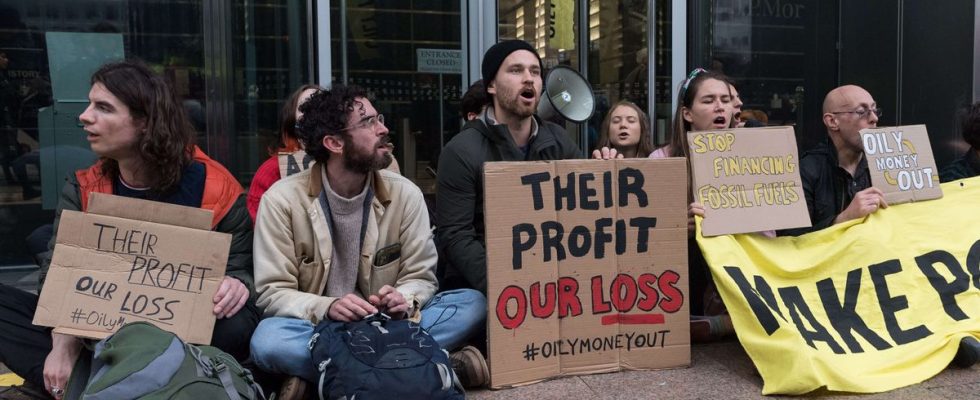“Words and words and words,” sang Dalida. This is essentially the message sent by a blog of economists from the European Central Bank (ECB) concerning the greenwashing of certain banks claiming to be committed to the climate while continuing to lend largely to fossil industries.
The banking sector is at the forefront of financing the transition to a greener economy, via plans for a total or partial exit from fossil fuels and renewable energy installations. This leads supervisors and investors to closely scrutinize the communication published on the subject.
However, research focusing on the loans of a sample of a few hundred large banks in the euro zone, over the period from 2014 to 2020, shows that establishments which “present themselves as more environmentally conscious lend more than others to brown industries,” write four ECB economists in a blog post published on Wednesday.
Too valuable customers
Their article, published in the middle of COP28, highlights a glaring “discrepancy” between the banks’ words and actions. Explanation: these establishments are “reluctant” to disrupt a long commercial relationship “with borrowers with a larger carbon footprint”, who for their part have concerns about profitability and finding other financing.
We should not see this as a “greenwashing effect” if these banks financed “the transition of brown borrowers to low-emission technologies”, continue the economists. But, despite credits allocated by banks that call themselves “green”, the most polluting companies “do not show that they are reducing their emissions or do not commit to voluntary emission objectives”, point out the economists.
It is also “striking” to see banks “reluctant” to lend to young companies in polluting sectors, even though they could “potentially stimulate innovation in cleaner technologies”, the experts further underline. If information on green loans from banks has become richer since the Paris climate agreement in 2015, the fact remains that banks “are not sufficiently encouraged to modify their lending policies”, according to the article.

